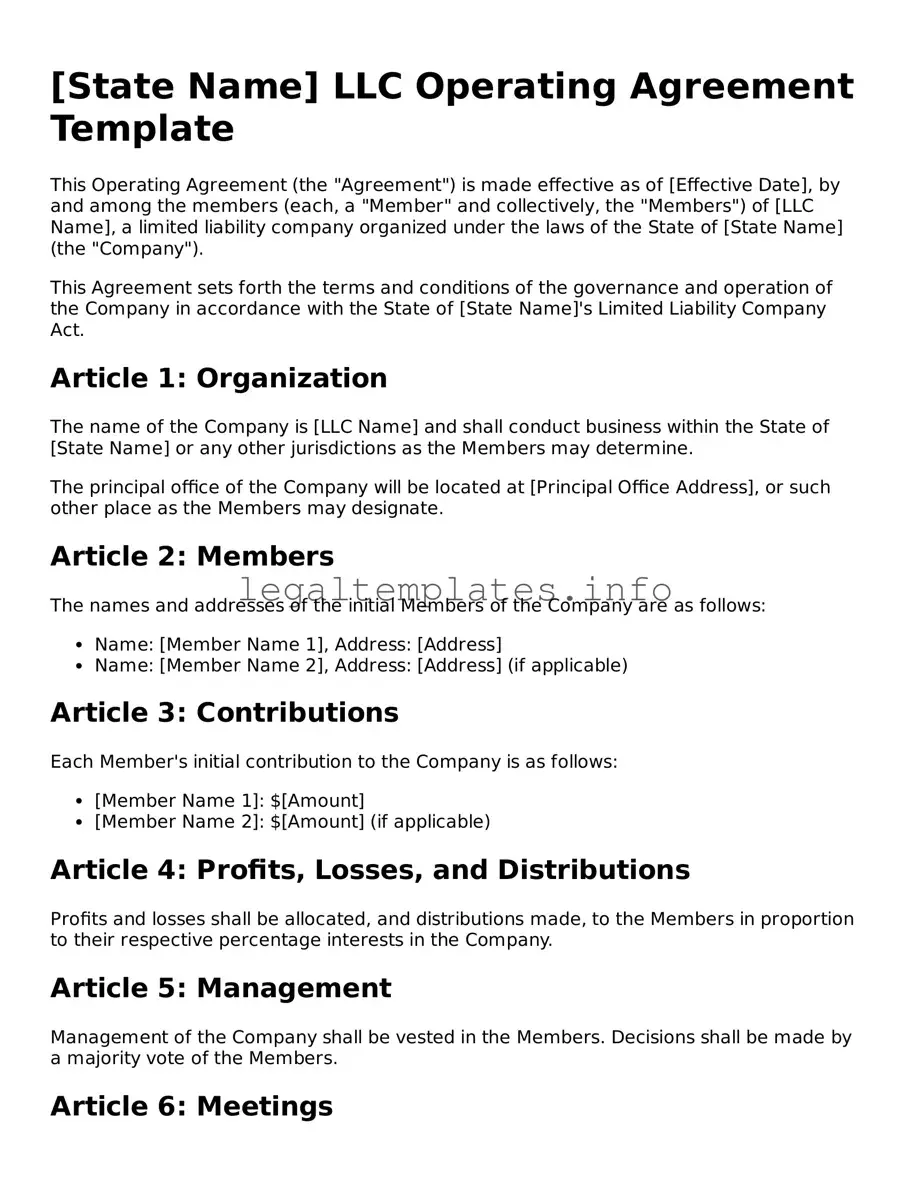[State Name] LLC Operating Agreement Template
This Operating Agreement (the "Agreement") is made effective as of [Effective Date], by and among the members (each, a "Member" and collectively, the "Members") of [LLC Name], a limited liability company organized under the laws of the State of [State Name] (the "Company").
This Agreement sets forth the terms and conditions of the governance and operation of the Company in accordance with the State of [State Name]'s Limited Liability Company Act.
Article 1: Organization
The name of the Company is [LLC Name] and shall conduct business within the State of [State Name] or any other jurisdictions as the Members may determine.
The principal office of the Company will be located at [Principal Office Address], or such other place as the Members may designate.
Article 2: Members
The names and addresses of the initial Members of the Company are as follows:
- Name: [Member Name 1], Address: [Address]
- Name: [Member Name 2], Address: [Address] (if applicable)
Article 3: Contributions
Each Member's initial contribution to the Company is as follows:
- [Member Name 1]: $[Amount]
- [Member Name 2]: $[Amount] (if applicable)
Article 4: Profits, Losses, and Distributions
Profits and losses shall be allocated, and distributions made, to the Members in proportion to their respective percentage interests in the Company.
Article 5: Management
Management of the Company shall be vested in the Members. Decisions shall be made by a majority vote of the Members.
Article 6: Meetings
Meetings of the Members shall be held annually or more frequently as needed at [Meeting Location] or at another location as agreed upon by the Members.
Article 7: Amendments
This Agreement may be amended or modified only with the consent of all Members.
Article 8: Dissolution
The Company may be dissolved at any time with the unanimous consent of all the Members. Upon dissolution, the Company's assets shall be distributed according to the Members' percentage interests after settling any debts.
Article 9: Governing Law
This Agreement shall be governed by and construed in accordance with the laws of the State of [State Name], without regard to its conflict of law provisions.
IN WITNESS WHEREOF, the Members have executed this Operating Agreement as of the date first written above.
Member Signature: ___________________________________ Date: ________________
Member Signature: ___________________________________ Date: ________________
Add more signature lines as necessary

